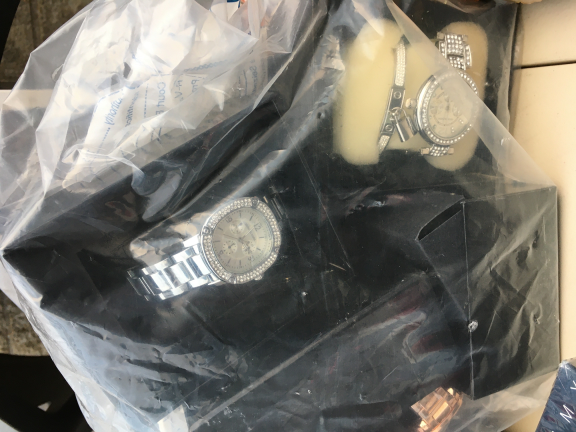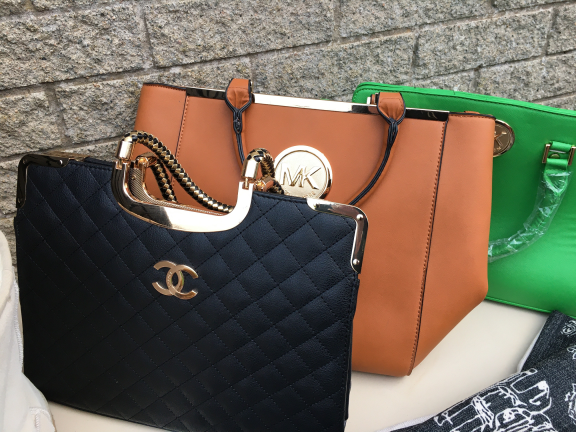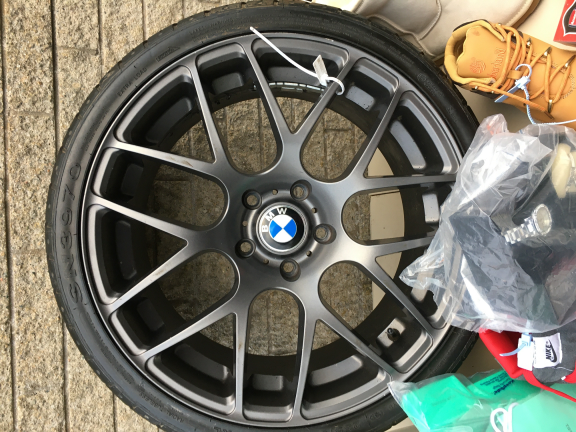
Detectives from the Police Service of Northern Ireland are warning of the risks associated with buying counterfeit goods.
The caution comes in the run-up to Christmas, when seasonal shoppers may be tempted by a supposed ‘bargain’.
It’s part of Operation Season’s Greetings, which delivers an all-encompassing safety message – from safe shopping to safety in the home.
The Police Service's Detective Inspector Tom Phillips chairs the Intellectual Property Crime Sub Group of the Organised Crime Task Force.
He is highlighting issues such as public safety, linked with the poor quality of counterfeit goods, and is also keen to draw attention to the often hidden costs.
Detective Inspector Phillips explained: “Criminals will attempt to copy anything – from clothing and trainers to tobacco, electronic items and jewellery. Some consumers may unwittingly buy counterfeit goods, while others – pleased to have snatched an affordable designer replica – will be unaware of the implications.

“The reality is that proceeds from the sale of counterfeit goods often fund serious organised crime, such as drug dealing, money laundering and human trafficking. To put it plainly, the purchase of counterfeit goods helps to line the pockets of criminals and paramilitaries.
“I’m also asking you to stop for a second and think about where these products come from in the first place. The answer is that the majority of fake goods are produced in sweatshops – factories with horrific conditions, and where vulnerable workers get paid a pittance.
The Police Service has outlined statistics associated with intellectual property crime:
· A survey in September 2020 showed 29% of UK consumers have purchased a counterfeit item, with 17% doing so frequently. Source: Intellectual Property Office (IPO);
· In the UK, the illicit trade of goods accounts for £9 billion in lost revenue, up to 84,000 fewer jobs and £4 billion in unpaid tax. Source: Organisation for Economic Co-operation and Development (OECD) report;
· The value of global Intellectual Property Crime is valued at £2.5 trillion (2019);
· The loss to UK designers over a five year period is valued at £8.7 million;
· 98% of counterfeit electronic items are considered extremely dangerous.
Detective Inspector Phillips continued: “Worryingly, given the current cost of living crisis, the opportunity to secure a ‘bargain’ may seem more attractive now than ever.
“Don’t be fooled, or enticed, by a replica logo or a seemingly cut-price designer handbag. Instead, please be mindful of where these goods have come from and where the ill-gotten profits will end up.
“There are also significant health and safety risks associated with counterfeit goods. Whether skincare, electrical items or children’s costumes – these items don’t undergo the testing and quality control that genuine items do. A counterfeit children’s costume, for example, won’t have the necessary safety-release mechanism, and a counterfeit phone charger won’t be up to fire safety standards. Don’t let the idea of ‘saving’ a few pounds cost you your home, or even your life.”
“I’m appealing to anyone with information about the supply of counterfeit goods to get in touch by calling 101 or by calling Crimestoppers on 0800 555 111, which is 100% anonymous.”

